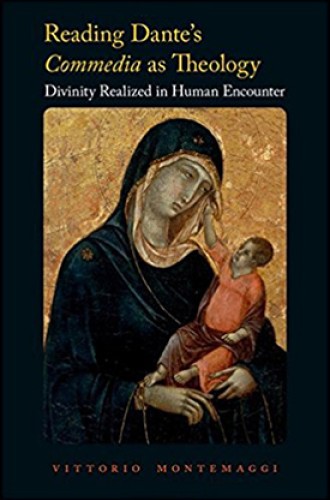In Dante, love is stronger than hell
Vittorio Montemaggi shows how important it is not to get stuck in the inferno.
Ask a friend to free-associate: “When I say ‘Dante,’ what is the first word that comes into your head?” “Inferno!” your friend responds. I have often tried this, and I lament this invariable response. The associated word should be love. For as Vittorio Montemaggi amply demonstrates, it’s not hopeless pain that reverberates throughout The Divine Comedy, but trinitarian love—a love that moves the sun, the stars, and every human heart animated by justice and kindness.
Montemaggi’s study shows how The Divine Comedy offers a potentially transformative encounter with a loving poet. Like Dante himself—the persevering pilgrim portrayed in the poem— receptive readers may find themselves reoriented, drawn to the hidden ground of love, and thus better poised to help others along the way to our common goal, communal beatitude.
In the poem’s first canto, Dante learns that he can’t reach God by himself. He needs the help of others to guide him to our common telos. When heavenly mediators are moved by divine love to summon Virgil, the Roman poet guides Dante down into hell and up Mount Purgatory. Dante, learning to see sin for what it is, discovers that any attempt to “possess or control” God will fail. In hell, he meets souls like Ulysses, who presumptuously sought autonomous apotheosis, cut himself off from all human ties, and destroyed himself in the process.






